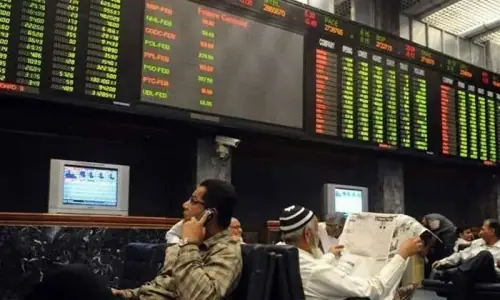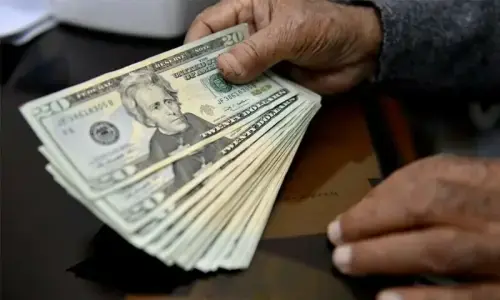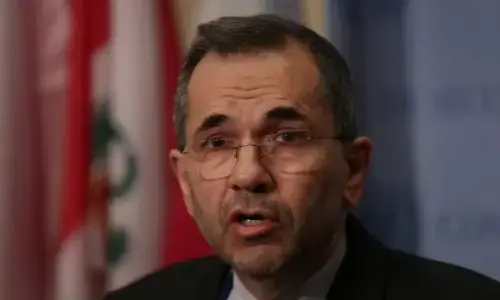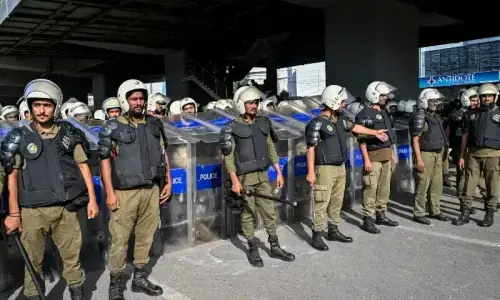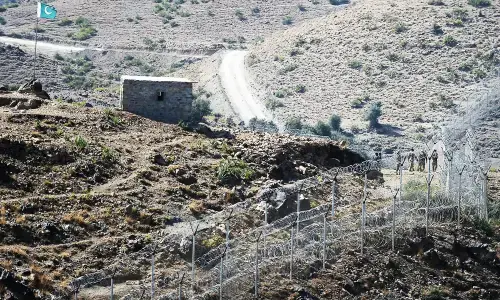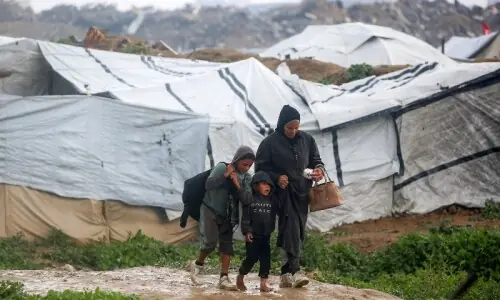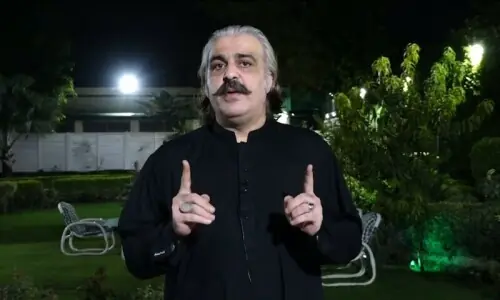Last year’s economic outcomes were largely devastating for Pakistan. The outlook for 2021 is equally uncertain for people and businesses in both Pakistan and the rest of the world.
This uncertainty is stopping the political and economic leadership from taking a firm position on how economic conditions will unfold in 2021 as political noise increases and an unprecedented health crisis defines the future.
Views were sought from Minister for Finance Dr Abdul Hafeez Shaikh, but the responses came from the Ministry of Finance (MoF).
It expects the 2021 to witness broad-based economic recovery supported by “fast-tracked CPEC projects,” revival of industrial activities and increase in exports. At the same time, the MoF estimates the Ehsaas programme will expand significantly, a sign that even the broad-based economic recovery would be insufficient for the majority population to get back on its feet. Following is the edited version of the Q&A.
Last year was a historically difficult year. How do you foresee the year ahead?
Pakistan has done better in terms of managing the Covid-19 crisis and stimulus measures taken by the government have led to a recovery of economic activity. The record Rs1,240 billion stimulus package, the largest in Pakistan’s history, provided cash assistance to 15 million vulnerable families, supported SMEs and private-sector businesses and large industries to shield workers and avoid bankruptcies. On top of this, the historical construction package announced by the prime minister has led to additional spending of Rs300bn in the construction sector, a significant boost to the economy and creation of new jobs. The agriculture sector and small farmers have benefited from higher support prices and subsidies on fertiliser, bank credit and other farm inputs (seeds, tractors etc).
We believe that the ground realities are supportive of a broad-based economic recovery in 2020-21 as already evident from strong growth in the manufacturing and services sectors.
The shift of the farming community towards more profitable crop options can threaten food security. Is there a strategy to ensure the production of sufficient food crops and cattle stock?
The agriculture sector has stagnated over the last decade with zero growth and its share in GDP has shrunk from 21.4pc in 2012-13 to 19pc in 2017-18 while the import bill of major agricultural commodities peaked at $4bn (2017-18). Crop yields are one of the lowest in the world and crops are not resistant to pest and weather challenges.
To tackle these problems and boost the farm output, the government launched the Prime Minister’s National Agriculture Emergency Programme in July 2019 involving 16 projects of Rs309.7bn to boost the yields of major crops. The share of the federal government’s spending will be Rs85bn, share of provincial governments will be Rs175bn and the share of farmers will be Rs50bn. In addition, to conserve and increase productivity of water, three projects costing Rs220bn focused on watercourse lining and small dams have been launched. Also, the government has earmarked Rs23.6bn for establishing four new markets and upgrading infrastructure in 54 existing agricultural markets in Punjab.
Supporting industrialisation is crucial but will the government audit the outcome of cheap credit, tax breaks, subsidies and concessions to the business community to assess the impact on jobs and revenue generation?
(The MoF did not comment if it has any plans to audit the outcome of cheap credit, tax concessions and other subsidies but blamed the “reckless policies of the previous regimes to have led to de-industrialization of Pakistan through loss of competitiveness”.) Not only did Pakistan industry lose its share in the global export markets but most manufacturers were unable to even compete at home due to cheaper imports.
Our government is focused on reversing this trend and has significantly scaled up support to the manufacturing industry, in particular the export industry in the shape of cheap energy and export incentives.
These incentives and subsidies are performance-based. The performance is monitored by the relevant ministries and government departments. We are encouraged by the results so far.
Did you see the suspension of the IMF programme in February last year a blessing in disguise as it opened a window to be generous towards businesses and offer an amnesty scheme for investment in the construction sector?
The IMF is a key development partner for Pakistan and has provided valuable financial and technical support during the current year. This includes $1.4bn support to Pakistan in April 2020 under the Rapid Financing Instrument (RFI) to support the Covid-19 response and stabilise the economy.
The $6bn IMF Extended Financing Facility (EFF) approved in July 2019 is ongoing and the first review was successful with all performance targets and structural benchmarks met. Post-pandemic, ground realities have changed, with the government stimulus spending aimed at protecting the vulnerable households and supporting business through the pandemic crisis.
We are working closely with the Fund staff to (resume) the review process at the earliest. The historic construction package launched in response to the pandemic and is aimed at creating new job opportunities and providing affordable housing solutions.
Do you intend to further broaden the social safety net through the Ehsaas programme? How about its sustainability?
The biggest success story of Pakistan in 2020 was the rapid response launched by the prime minister’s Ehsaas programme to protect vulnerable households during the pandemic. The transparent manner in which 15m households (around 45pc of the total population) received cash assistance in a short time has been acknowledged world over.
We are targeting to permanently increase the Ehsaas cash assistance programme to 7m households in 2021 from 4.5m earlier.
How far have the power sector and tax reforms progressed under the PTI rule?
Significant progress has been made but much more needs to be done. Reforms of the power sector are far-reaching and represent the most significant reforms undertaken in Pakistan’s history. The proposed implementation plan of the Competitive Trading Bilateral Contracts Market (CTBCM) will usher in a competitive environment in the power sector benefiting consumers. This will convert the existing captive (single-buyer) electricity market into a liberal multi-buyer environment. Secondly, the government and IPPs have reached an understanding, which will bring benefits to the consumers.
As for tax reforms, we have reduced the large tax exemptions to the five zero-rated sectors on their respective domestic sales. We estimate that domestic sales of these sectors are over Rs1 trillion and bringing them into the tax net will significantly boost tax revenues.
How do you see CPEC faring in 2021?
CPEC is central to our growth strategy with a focus on improving our trade infrastructure. Under CPEC, we are setting up nine special economic zones (SEZs) across Pakistan with tax incentives for foreign and domestic investors. In the first phase, CPEC investment focused on critical infrastructure bottlenecks (energy, railways, ports and road infrastructure) that will address these gaps and boost trade competitiveness. In the second phase, we focus more on industrial and agriculture investments to boost productivity and increase exports.
We have fast-tracked projects under CPEC and are confident that 2021 will be the year where benefits of these investments will support stronger recovery in the economy.
Global trade has been stressed owing to a prolonged economic contraction, creating a challenge for Pakistan. How do you plan to take advantage of the regional trade?
The global economy has gone into a recession and key export markets are down. However, exports from Pakistan have recovered to pre–Covid-19 levels and we believe that as a result of incentives provided by the government, our exporters will be able to capture a bigger market share in key export markets.
The export industry suffered under the previous regimes with zero growth in exports over the last five years. Our government made it a priority to support the export industry and boost foreign exchange earnings, instead of relying on expensive foreign debts to fund the large trade deficits. The government gave incentives to the export industry by providing subsidised power and gas at regionally competitive rates besides export refinance schemes.
Published in Dawn, The Business and Finance Weekly, January 4th, 2021



